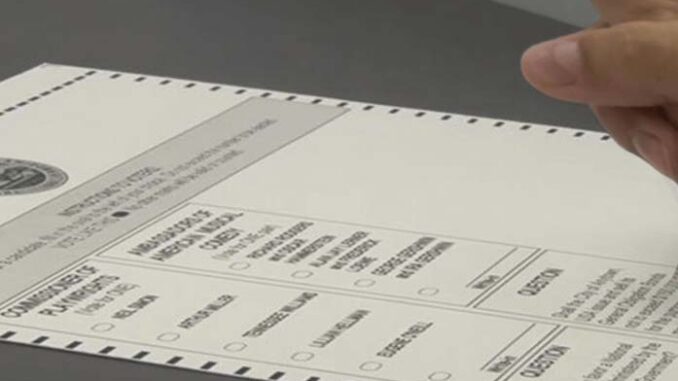
With early voting beginning for the 2022 primary elections, voters in one county have been instructed to stop voting for unofficial write-in candidates.
A statement recently issued by Cochise County notes there are only two official write-in candidates throughout that county, and they are the only names a voter should inscribe on a primary ballot.
“Voters should not write in names such as ‘Mickey Mouse’ or others that aren’t official write-in candidates,” according to the statement which added that all write-ins “must be reviewed by bipartisan teams at the taxpayer’s cost.”
Many voters opt to write the name of an unofficial candidate as a form of protest or to show displeasure with the available candidates. For example, in 2016 about 31,000 voters in Maricopa County ignored the names of the various presidential candidates and instead wrote in the name of someone else, whether human or a character.
After that election, David Berman said it was “a statement to the extent to which the election turned people off.” Berman, a professor emeritus of Arizona State University’s political science program, added that choosing to select someone who is not an official candidate “shows contempt for the whole system.”
In Cochise County, the official canvass of the 2020 General Election shows 60,664 votes cast for President, with 223 listed as being for a write-in candidate. However, 192 of those were considered “unofficial” yet still had to be accounted for during tabulation.
Voting for a write-in has long been considered a form of protest in America. The most popular unofficial candidates have been Mickey Mouse, although from 1960 to 1980 political satire ads for Alfred E. Neuman for President ran in Mad magazine.
However, one problem with casting a write-in vote for an unofficial candidate is that the vote itself might be treated as if did not happen. For example, if 1,000 votes are cast in a specific race but 50 are written in for someone who cannot be elected, then elections officials may consider only 950 votes as being cast. The same occurs with votes cast by writing in “none of the above.”
This creates a situation in which a candidate needing to receive 50 percent plus 1 of the cast votes to win a race would need only 476 votes if based on 950 counted votes compared to 501 if all 1,000 votes cast were counted.

